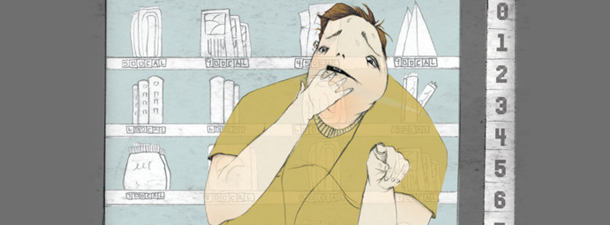I’m a big fan of the book, 7 Habits of Highly Effective People. At my “real job” (a corporate setting), I was heavily encouraged (forced) to learn about this book and spend lunch hours listening to seminars about it. Admittedly, I had a bad attitude about it at first. I had always thought this book was for type-A jerks who wanted to manipulate people into getting what they wanted. More like 7 Habits of Highly Manipulative People.
Boy, was I wrong. If you’ve never read it, I heavily encourage (force) you to. It could possibly rock your world and make you a better person.
“The Speed of Trust” is another book that several of my colleagues are reading, including myself. The author, Stephen M.R. Covey is the son of the author of 7 Habits, Mr. Stephen R. Covey. Yet, another book I had a bad attitude about at the beginning. I thought, “Don’t tell ME who to trust!” I’m so naïve. It’s not what the book is about at all! I’m only a few dozen pages into the book, but I’ve already learned some profound concepts.
What Covey is trying to communicate is that before we can learn to trust other people, we first have to look inward and make sure that we are trustworthy. And unless we can trust ourselves, we may not ever learn to trust others.
“Self-Trust”
When I first heard the term “Self-Trust”, I’ll admit, I obnoxiously, dramatically rolled my eyes. “Great, another self-help psycho-babble term”, I thought. Yet again, I was so wrong. Geesh, I am such a pessimist!
So I read, “…Self Trust deals with the confidence we have in ourselves–in our ability to set and achieve goals, to keep commitments, to walk our talk–and also with our ability to inspire trust in others.” I thought, “Okay, I guess I can agree with that, but it’s a little fluffy.”
I kept reading, “…it often begins with the little things.” Covey tells a story about how he would always set his alarm earlier than when he knew he would get out of bed, because he knew he’d snooze for a while and wouldn’t get up when his alarm went off.
He expounded, “I would continue to lose trust in my ability to do what I had made a personal commitment to do.” Well, crap. That one got me.
A few months ago, as I was losing weight at a steady pace, I shared a fear of mine with a friend (the same person who was teaching the lunch seminars about 7 Habits, actually). She asked how the weight loss was going, and I responded in hesitancy, “Good, I guess. But to be honest, I feel like it’s probably just going to come back on. I don’t have the discipline to work out regularly.” She mentioned the book, “The Speed of Trust” and the concept of Self-Trust, and asked whether I trusted myself enough to be confident that I could keep it up. I responded honestly. “No, I don’t.”
Covey says, “Research shows that many of us don’t follow through on the goals we set or don’t keep the promises and commitments we make to ourselves.” We all know that, right? How many diets have you started in your lifetime? Probably a lot, right?
There’s part of me that loves to rebel against myself, as strange as that sounds. I know that I can’t commit to working out 3 times a week because I hate working out and I love to rebel against my own rules and feel, well, rebellious! Ha, in your face, Ande! Look who’s going to Taco Hell instead of working out! Me! Rebelling against your boss will get you fired–rebelling against your parents is so 1995–so who else are you going to rebel against? There’s an innate desire to rebel, deep down within us.
But as the years have gone by, and I’ve found myself breaking my own rules, I’ve almost lost trust in myself. I’ve always been taught that my “Yes” should be “Yes” and my “No” be “No”. I’m punctual, I’m ambitious, I’m honest, I pay my bills… I may appear very trustworthy on the outside, but I find myself asking 2 questions:
1) Do I Trust Myself?
The repeated failure to keep my own commitments have damaged my own reputation within myself, especially with dieting and working out. And ya know what? At the end of the day when I know I ate poorly and didn’t work out, I feel like crap about myself. I didn’t stick with plan. Years of self-deception can really wear on you.
Covey says, “What happens when we do this time after time? What’s the net result of repeated failure to make and keep commitments to ourselves? It hacks away at our self-confidence. Not only do we lose trust in our ability to make and keep commitments, we fail to project the personal strength of character that inspires us. We may try to borrow strength from position or association. But it’s not real. It’s not ours…and people know it. And whether we realize it or not, that impacts the bottom line.”
You can have a fake, temporary ambition to lose weight after watching an episode of “The Biggest Loser”, but will it last? Is it your ambition?
2) Do I Trust Others?
He also says, “The lack of self-trust also undermines our ability to trust others. In the words of Cardinal de Retz, “A man who doesn’t trust himself can never really trust anyone else.” When I can’t even trust myself to do something (like working out), something I have complete control over, how can I trust other people? Even people who really do deserve trust? I can’t.
“Self-trust is the first secret of success…the essence of heroism.” – Ralph Waldo Emerson
So what does this have to do with being poor or healthy? It has everything to do with it! If you’re broke, if you’re in debt, if you’re overweight, or unhealthy, it is likely that you lack a certain amount of control in your life–whether it’s your money or your belly. I believe we lose control when we don’t think we can keep control–when we stop believing we’re capable of anything better.
I hate going out to eat because when it comes down to the moment that the waitress is asking me for my order, I lose a sense of control. I want soda and fries. I don’t trust myself to decide on a salad and a water, and in a small way, I lose control. I feel like I’m probably going to gain some weight in the near future because I don’t trust that I’ll decide to shut up – get over it – and do it anyway…even though I know I can do it because I’ve done it before.
Sweat the Small Stuff: Self-Trust & Self-Control
Many of you haven’t started eating healthier because you don’t think you can keep it up long-term. Many of you haven’t cut crap out of your diet because you don’t think you can live without it. Maybe you haven’t signed up for the gym because you don’t think you’ll go 3 times a week.
I’ve started trusting myself in little ways, like Covey suggests. It used to be that if I was in traffic and looked in the rear view mirror before I changed lanes, I would look 1 or 2 more times to make sure I really saw what I thought I did. Now, I look once, trust myself, and go. I used to check 2 or 3 times just to make sure my 4 alarms were set every night. I know I’m not an idiot. I trust myself that I set them properly, so now I don’t even check at night. My next step is to only have ONE alarm, not FOUR!
I believe that if you can’t control your desires in the small ways, you may not be able to control them in the big ways. I won’t get into a religious discussion here like I want to, so let’s talk food: I want ice cream every single night. My small version of self control is walking away from the kitchen into my room to work and NOT going out to the store to get ice cream–which is really all I can think about sometimes. Add up 100 moments of self-control, and you’ll find yourself losing weight and feeling confident in your own strength.
These are all little, seemingly trivial, changes, but sometimes you’ve got to start small.
There comes a point in your life where you have to start trusting in your own competence. You’re not an idiot and you’re smarter than you think. I mean, I don’t know you personally, but I’m sure you are if you’re reading my website. 🙂
Let your “Yes” be “Yes” and your “No” be “No”, even if no one else knows it but you. If you can start keeping your own promises, I do believe you’ll be a more trustworthy person in general. And eventually, over time, turning over new leaves with diets or healthier food, new hobbies or gym memberships, maybe, just maybe you’ll not only believe that you can do it, but you actually do it and stick with it.





Exceptional – thank you!